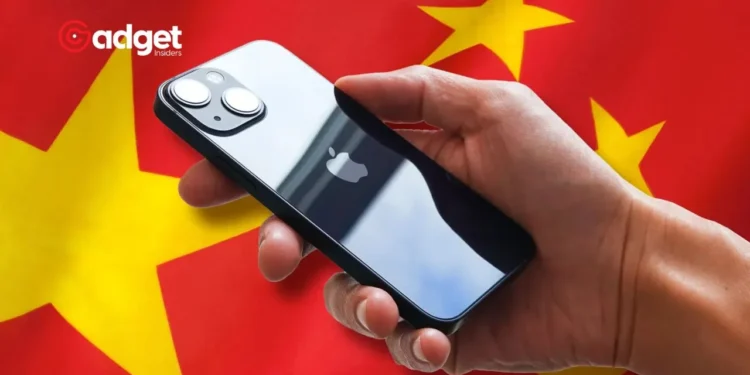In a bold move that underscores increasing concerns about data security, the South Korean military is reportedly on the verge of imposing a ban on the use of iPhones within its ranks. This decision, which could be implemented as early as June 2024, stems from fears of potential data leaks through voice recordings, a vulnerability deemed unacceptable in the sensitive environments of military operations.

South Korean Air Force Plans iPhone Ban Over Data Security Concerns
According to a detailed report from The Korean Herald, the South Korean Air Force headquarters has issued an internal announcement, circulated on the military’s intranet server this past April, indicating a forthcoming prohibition against the use of all devices that lack third-party app control over core functions, including voice recording. Notably, iPhones have been specifically highlighted as devices that will be banned from June 1.
The internal memo explicitly states, “It’s inevitable to block any kind of voice recording, not just formal communications including meetings, office conversations, business announcements, and complaints from and consultations with the public, but also informal communications such as private phone calls within military buildings.” This comprehensive approach indicates a serious commitment to safeguarding all forms of communication within military premises.
South Korea threatens iPhone and iPad ban over patent infringement pic.twitter.com/bkRok2IK3c
— Jelly Words (@jelly_words) September 11, 2018
Why iPhones?
The initiative to exclude iPhones specifically appears to be linked to limitations with the South Korean military’s Mobile Device Management (MDM) system. The system, which is crucial for controlling device features to prevent unauthorized data access, reportedly struggles to manage the inherent features of iPhones, particularly those related to voice recording capabilities. In contrast, Android devices, primarily those manufactured by South Korean giant Samsung, are expected to be exempt from this ban. The capabilities of Android’s MDM systems to effectively manage these security features are suggested as the reason behind this selective exclusion.

A Rare Step in Military Security Protocols
Such an exclusive ban on a popular global brand like Apple is unusual in military practices worldwide, which more commonly entail restrictions on certain types of electronic devices across the board, regardless of brand. The specificity of this ban highlights the unique challenges posed by modern communication technologies and the lengths to which military organizations must go to mitigate these risks.
Technical Feasibility
The decision, however, raises questions about the technical assertions made by the military. Apple’s official documentation suggests that iPhone features, including voice recording, can indeed be managed through MDM systems. This contradiction points to a potential discrepancy between theoretical documentation and practical application, or possibly a deeper technical issue with the MDM system used by the South Korean military.

Implications of the Ban
The implications of such a ban are significant, not only for the operation and security protocols of the South Korean military but also for Apple’s business in the region. It also raises broader questions about the balance between technology use and security in sensitive environments, a topic of global relevance and concern.










